From trauma to tenderness, the worst weather lashing Bombay has often drawn out its best
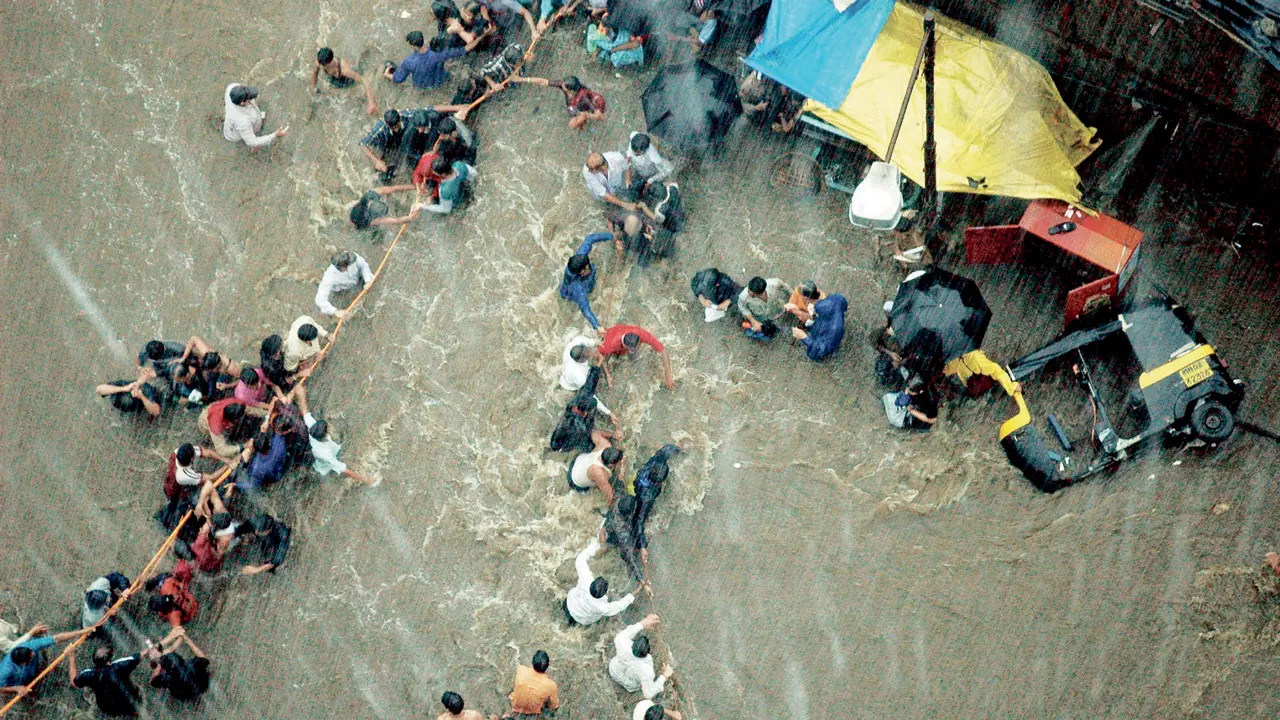
Usha Uthup reprised her sister Uma Pocha’s 1960s hit, “Bombay Meri Hai”, with a grimmer rendition after Mumbai faced flood havoc on July 26, 2005. File pic/Rane Ashish
 The rounds of claim and counter-claim in the Hera Pheri controversy on the recent Monday when the heavens opened to make Bombay hell, reminds me of a water-soaked morning almost 50 years ago. The original hit Hera Pheri — Prakash Mehra’s 1976 masala movie — was our delight to catch on a day dawning wet enough for schools to quickly shut.
The rounds of claim and counter-claim in the Hera Pheri controversy on the recent Monday when the heavens opened to make Bombay hell, reminds me of a water-soaked morning almost 50 years ago. The original hit Hera Pheri — Prakash Mehra’s 1976 masala movie — was our delight to catch on a day dawning wet enough for schools to quickly shut.
We were avowed second day-second show fans, my classmate Nimmi and I. First day-first show for the most eagerly awaited flick was an impossibility at that school-going age. We suffered even a short wait, counting the hours for the Saturday noon slot. What got us giggling with excitement to Neptune Cinema opposite Bandra Station, wading through waters swirling in pools at our feet and torrents pelting from above?
A Greek god blessed with a chin clefted enough to deeply drown in. That single screen theatre may well have been named for the Roman sea god. But ours was Vinod Khanna. Teamed with Amitabh Bachchan, in the jigri dost-turned-jaani-dushman “action thriller” as the prevailing genre was labelled, he made us melt.
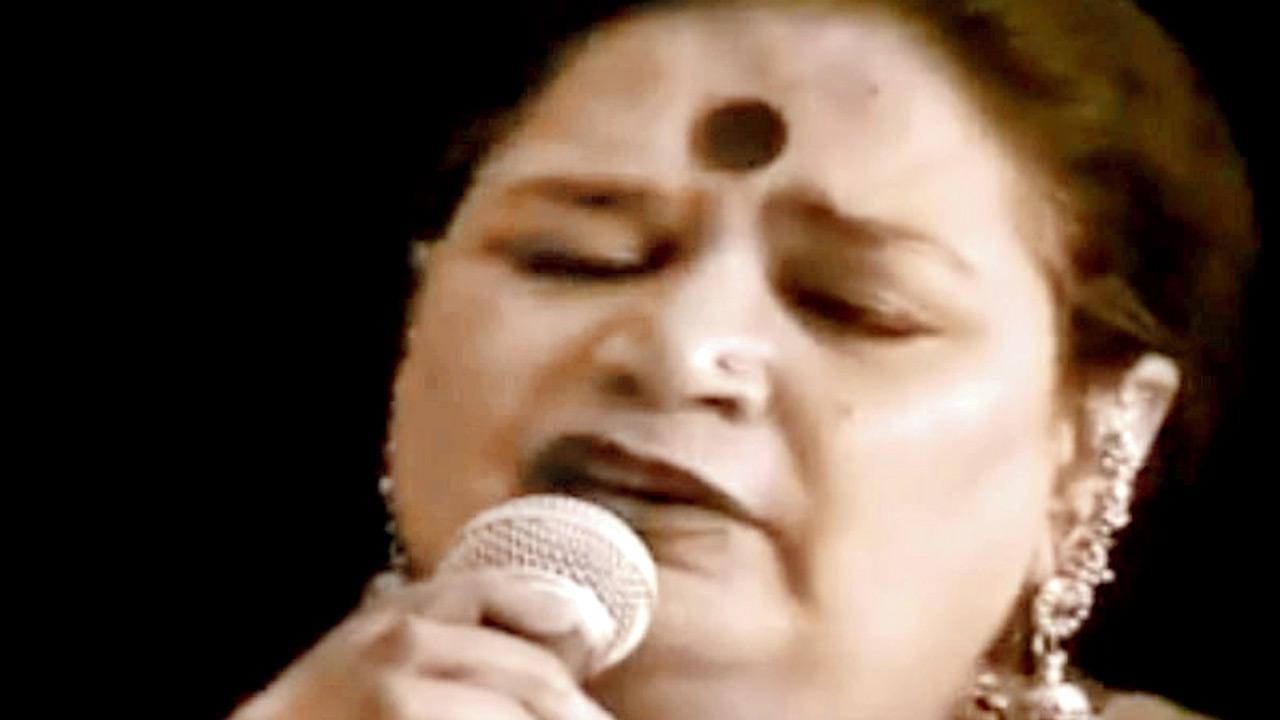
Outside, non-stop rain drummed loud beats with crazy claps of thunder and flashes of lightning. Blissfully oblivious, we were warmed by frame upon frame of those rugged good looks, toes curling in our soggy slippers.
Like New Talkies on Hill Road, also hurtling from cinema to commerce, Neptune transformed into Veena Beena Shopping Centre. Close to Neptune, if less patronised by us, was Nandi Talkies near the Bandra talao. Cheap pricing was a given. So were constantly conked-out air conditioners and rats nibbling fallen samosa crumbs. The shrieks of horrified ladies drowned the squeaks of vermin foraging around their feet.
Some miles south from where Nimmi and I indulged our silver screen cravings, my cousin Niloufer Dubash thrived amid the marquee magic of cinema houses around Grant Road. On the ground floor of her century-old building, Mahrukh Mansion on Lamington Cross Road — or Alibhoy Premji Marg after the veteran motorcycle dealer staked its prominent corner here — lived Jehangir Irani, manager of Roshan Cinema, owned by his brother Pirojshaw, who named it after his daughter.
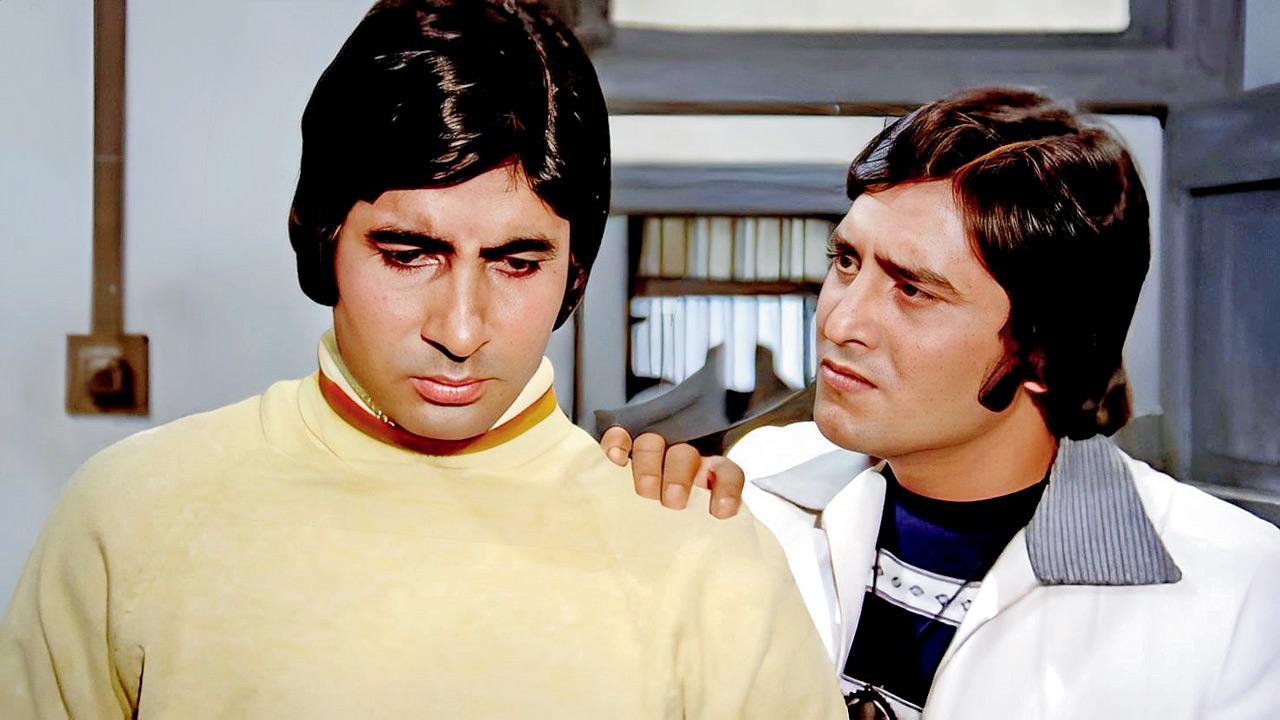
Still from the original 1976 film Hera Pheri directed by Prakash Mehra. Pic/IMDB
The Iranis climbed up to Nilou’s flat when rain often flooded theirs. Waves swelled from Agripada Police Station to Maratha Mandir, with only D and N route double-decker buses trying to lumber valiantly in the rising waters. Her reaction was sheer elation: “Yay, that meant no school but story time joy with Jehangir Uncle, about old Ballard Estate cafes and catchy wartime songs he taught us.”
Not far from Lamington Road, a touching scenario played out with quiet regularity on Sleater Road when angry Nimbus clouds broke loose. A boat maker generously provided simple crafts ferrying residents left utterly stranded by floods. Lauding the extraordinariness of ordinary people on her home mile, Dilnavaz Billimoria, a workplace diversity specialist in Melbourne, wrote to say: “Much has obviously changed since I lived there.
But the Sleater Road Stalwarts, as my dad called them, will always give a warm welcome to all residents, past, present and future. I’ve seen the brave heart of this cosmopolitan community when we were impacted by monsoon flooding. Year after year, the humblest, hardworking, hospitable and honest people of the area rescued so many people and animals, not fearing for themselves. A boat maker on the street sailed boats for the marooned.”
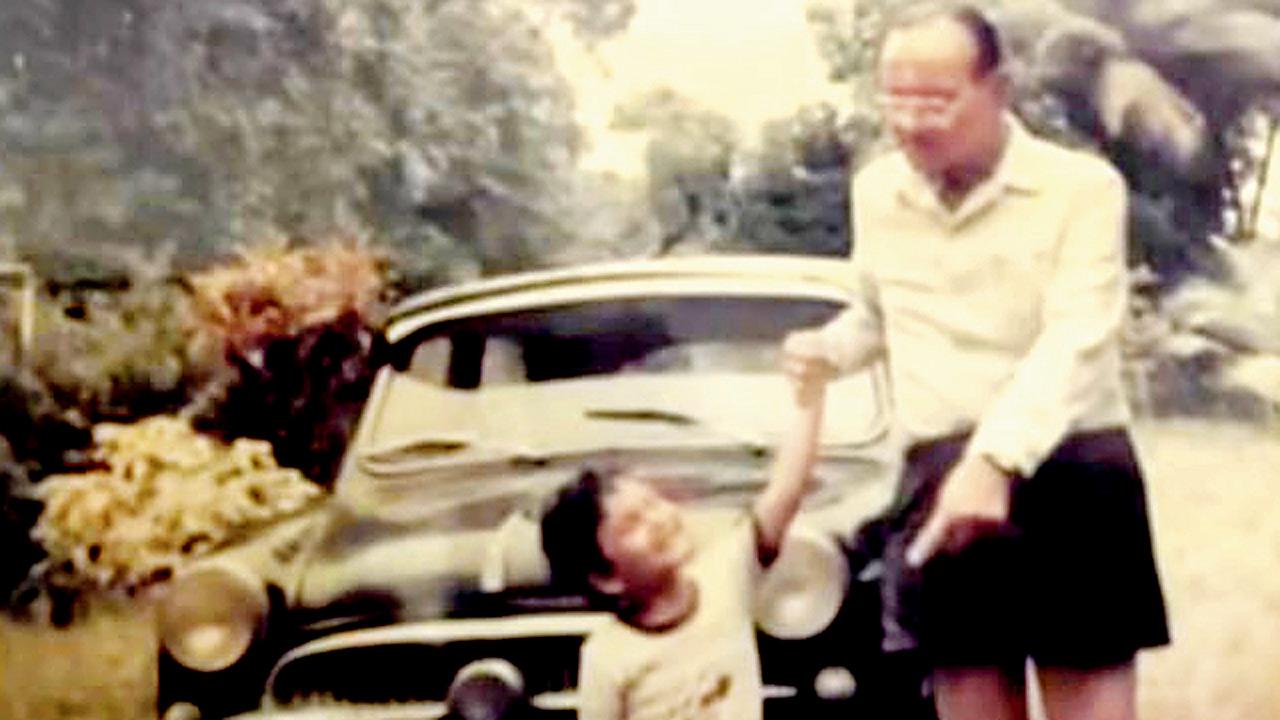
Fram Dhondy’s father Burjor, and Fram’s son Anosh, with their 1957 Fiat 1100 Elegant
Five whole years after Billimoria’s account, the identity of the till-then anonymous “boatman” was revealed. He mailed me. Fram Dhondy wrote: “Your article on Sleater Road mentioned a boat was run from Grant Road station to various buildings. That service was by my company, established in 1945. Into construction today, we used to also make boats in the Girton School compound there.” His firm, Levka, was coined as an artful pairing of its founder partners’ names — Levi, an Italian, who would supervise the actual boat building and a Mr Kanga who was the overseer of the construction activities. Hence, LEVi KAnga. Incidentally, 71-year-old boatman Dhondy is an acknowledged vintage car buff.
“I recollect seeing his boat a couple of times every year from the 1950s,” remembers Adi Engineer. “Those waters were terrifying but no deterrent. Nothing stopped us wanting to reach school, mine being Antonio Da Silva School in Dadar. As long as the boat took us to the station at the south end of the street.”
The boat was hardly the choice of certain formally dressed office-goers, though. At least six decades after, Engineer recreates the drama of a scene of alternative transport in great detail. “That weather posed little obstruction to certain Parsi gentlemen of Sleater Road bound for office in horse-drawn Victorias clopping through the waters. Always properly coated and hatted, with a newspaper rolled underarm. More British than the Brits themselves, they probably thought the British copied us. It was a sight — stools placed every few steps in the water for the gents, helped by their home staff from building gates till they stepped into the ghoda gadi.”
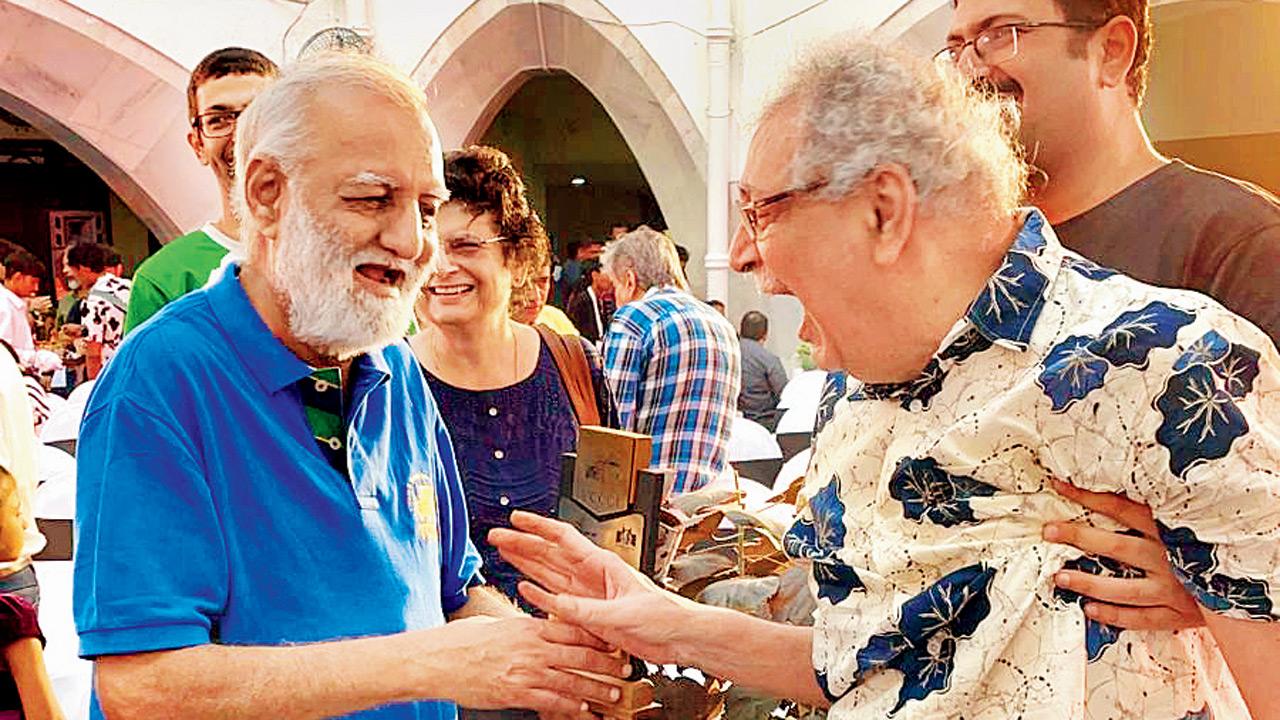
Receiving the lifetime achievement award from Nitin Dossa for his contribution to the city’s vintage and classic car aficionados’ fraternity. PICS COURTESY FRAM DHONDY
Not far from Engineer’s school, an iconic Dadar film studio was the site of more movie magic mixed with monsoon downpours. “The music of Mughal-e-Azam is your department,” director K Asif told the legendary music composer Naushad. Aware of the importance of his work, required to accompany the grand themes this epic soundtrack would support, Naushad roped in Shakeel Badayuni to script the lyrics. Together, the maestros finalised such immortal melodies as Pyar Kiya To Darna Kya and Aye Mohabbat Zindabad, hauntingly sung by Lata Mangeshkar and Mohammed Rafi.
Film historian and cricket journalist Raju Bharatan (my respected senior colleague at The Illustrated Weekly of India in the 1980s) quotes, in his book Naushadnama: The Life and Music of Naushad — “Every Mughal-e-Azam song by Lata Mangeshkar was recorded in no more than a tin shed of Roop Tara Studios. We urgently called for woollen blankets from the bazar to shut off tinny vibration as the skies opened. Our technicians were second to none; the finest recordings were executed by Robin Chatterjee in that daunting setting. The musicians, 20-25 of them, huddled in the same shed as my main singer. Yet, look at the calibre of each rendition, cushioned by blankets.”
Coming full circle with a song we need never forget… Not cinematically born, yet hard to ignore in these weeks of monsoon mayhem — causing pothole-induced accidents and tragic building crashes leaving hundreds homeless — is the sensitively reworked version of a peppy picnic standard. Twenty years ago, after the deadly July 2005 deluge, the beat changed for the soaring strains of Bombay Meri Hai, warbled with gusto in the 1960s by Uma Pocha. Everybody’s party favourite morphed elegiacally after flood fury claimed numerous lives.
Riffing off that chirrupy city anthem, Pocha’s husky-voiced sister Usha Uthup slowly intoned: “Even when it rains, we just roll our sleeves and say/Come to Bombay, come to Bombay, Bombay meri hai.” And “People come from everywhere, from near and afar/To make a decent living or to be a superstar/They decide to stay and one day you will hear them say/Come to Bombay, come to Bombay, Bombay meri hai.”
A paean to the kindness of strangers and to adaptability, the wistful soundtrack wafted over black-and-white reportage clips capturing the trauma of crippling floods, interspersed with visuals of policemen, dabbawalas and taxi drivers rescuing pedestrians in neck-high water. The old classic acquired more melancholy overtones in this poignant rearrangement by Zubin Balaporia, the same song evoking an entire other mood.
As Uma’s son Adi Pocha says, “Rendered with different emotions, this was suddenly filled with new meaning. Zubin rearranged an old melody as a heartfelt tribute, essentially the same song evoking an entire other mood. Pride. Love for a complete melting-pot of a city. The wonderful display of an indomitable people’s solidarity, strength and resilience.”
Author-publisher Meher Marfatia writes fortnightly on everything that makes her love Mumbai and adore Bombay.
You can reach her at meher.marfatia@mid-day.com/www.meher marfatia.com
 Subscribe today by clicking the link and stay updated with the latest news!" Click here!
Subscribe today by clicking the link and stay updated with the latest news!" Click here!










